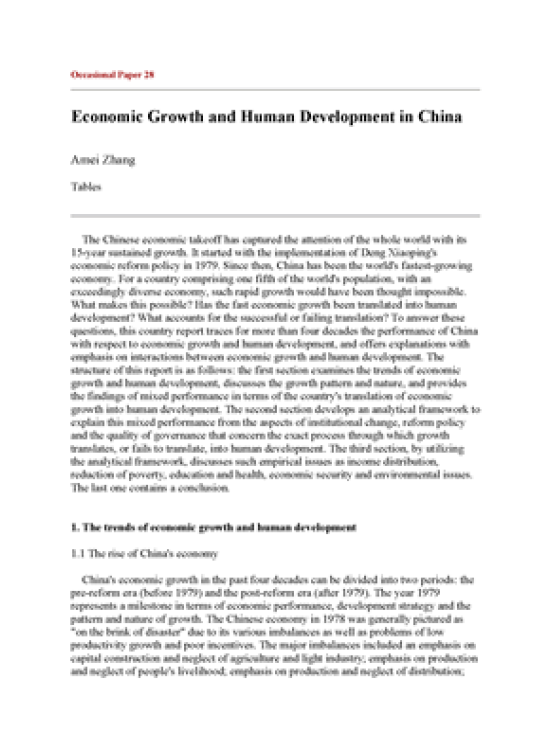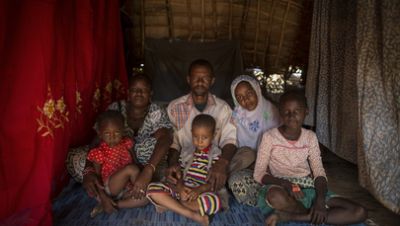Economic Growth and Human Development in China

Citation
Zhang, Amei. 1996. Economic Growth and Human Development in China. New York.
Economic Growth and Human Development in China
Posted on: January 01, 1996
The Chinese economic takeoff has captured the attention of the whole world with its 15-year sustained growth. It started with the implementation of Deng Xiaoping's economic reform policy in 1979. Since then, China has been the world's fastest-growing economy. For a country comprising one fifth of the world's population, with an exceedingly diverse economy, such rapid growth would have been thought impossible. What makes this possible? Has the fast economic growth been translated into human development? What accounts for the successful or failing translation? To answer these questions, this country report traces for more than four decades the performance of China with respect to economic growth and human development, and offers explanations with emphasis on interactions between economic growth and human development. The structure of this report is as follows: the first section examines the trends of economic growth and human development, discusses the growth pattern and nature, and provides the findings of mixed performance in terms of the country's translation of economic growth into human development. The second section develops an analytical framework to explain this mixed performance from the aspects of institutional change, reform policy and the quality of governance that concern the exact process through which growth translates, or fails to translate, into human development. The third section, by utilizing the analytical framework, discusses such empirical issues as income distribution, reduction of poverty, education and health, economic security and environmental issues. The last one contains a conclusion.

